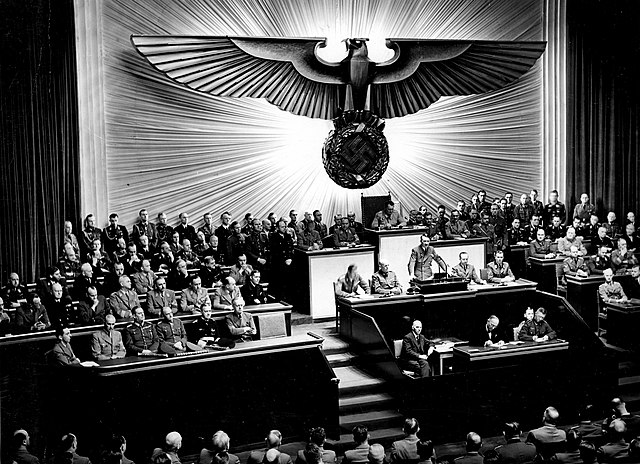Leland Burnette Morris was an American diplomat. A native of Fort Clark, Texas, he was the first United States Ambassador to Iran, serving that post from 1944 to 1945. Earlier he was United States Ambassador to Iceland from 1942. Morris served many other diplomatic posts including American Consul General in Jerusalem in 1936, American Consul General in Vienna from 1938 to 1940 after the German annexation of Austria and the American chargé d'affaires in Germany during the outbreak of official American involvement in World War II.
Leland B. Morris
German declaration of war against the United States
On 11 December 1941, four days after the Japanese attack on Pearl Harbor and the United States declaration of war against the Japanese Empire, Nazi Germany declared war against the United States, in response to what was claimed to be a "series of provocations" by the United States government when the U.S. was still officially neutral during World War II. The decision to declare war was made by Adolf Hitler, apparently offhand, almost without consultation. It has been referred to as Hitler's "most puzzling" decision of World War II. Publicly, the formal declaration was made to American Chargé d'Affaires Leland B. Morris by German Foreign Minister Joachim von Ribbentrop in the latter's office. Later that day, the U.S. declared war on Germany, with Germany's action having eliminated any remaining meaningful domestic isolationist opposition to the U.S. joining the European war.
Hitler announces the declaration of war against the United States to the Reichstag on 11 December 1941
Closeup of Hitler as war is declared upon the United States, 11 December 1941
Franklin Delano Roosevelt's signing of the declaration of war against Germany, the response of the United States to Hitler's declaration




